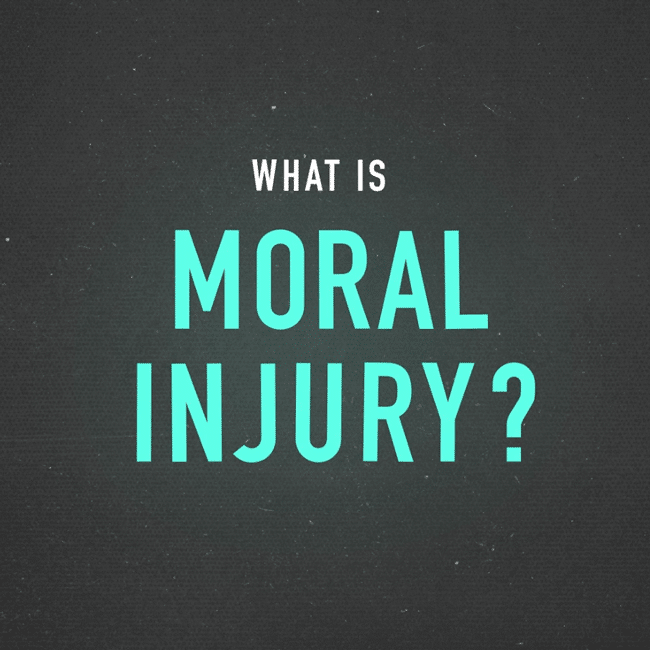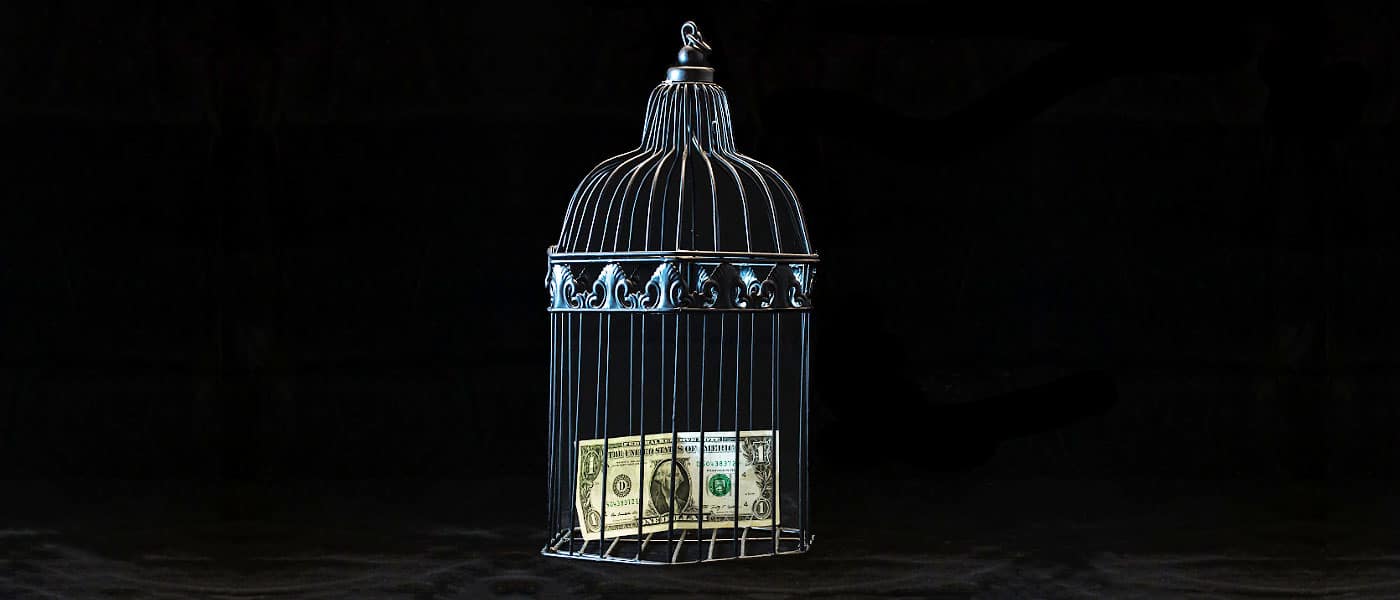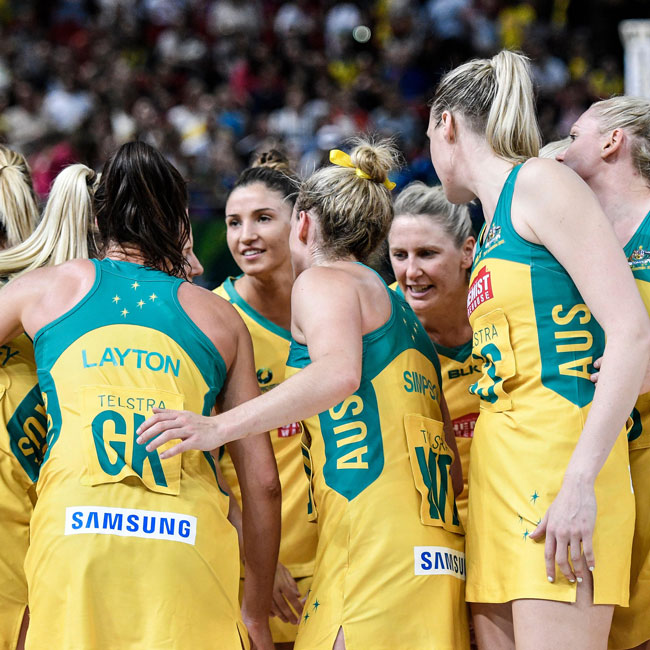Ethics Explainer: Hedonism

Hedonism is a philosophy that regards pleasure and happiness as the most beneficial outcome of an action. More pleasure and less pain is ethical. More pain and less pleasure is not.
What is hedonism?
Hedonism is closely associated with utilitarianism. Where utilitarianism says ethical actions are ones that maximise the overall good of a society, hedonism takes it a step further by defining ‘good’ as pleasure.
There are different perspectives on what pleasure and pain really mean. For Epicurus, the ancient Greek philosopher, pleasure was the absence of pain. Though his name has become synonymous with indulgence – “Epicurean holidays”, a food app called “Epicurious” – he advocated finding pleasure in a simple life with a bland diet.
If we live a rich, complex lifestyle we risk suffering more when it ends. Best not to love them to begin with, he suggests.
John Stuart Mill believed in a hierarchy of pleasures. Although sensory pleasures might be the most intense, it was fitting for higher order beings – like humans – to enjoy higher order pleasures – like art. “It is better to be Socrates dissatisfied than a pig satisfied”, he said. (With evidence to suggest pigs can orgasm for up to fifteen minutes, Mill’s account feels a little incomplete).
Most people will agree pleasure and pain are important for determining the value of something. That’s not enough to make you a hedonist. What makes hedonism unique is the claim only pleasure and pain matter. That’s where people tend to be more hesitant.
The experience machine
The philosopher Robert Nozick wanted people to feel the pinch of measuring life only based on pain and pleasure. He developed a thought experiment called the experience machine.
Imagine a machine that can plug into your brain and simulate the most pleasurable life you could imagine. It would respond to your specific desires – you could be a rock star, philosopher or space cowboy depending on what was most pleasurable. But if you plugged in, you could never unplug. Plus, although you’d feel as though you were experiencing amazing things, you’d be floating in a vat, feeding through a tube.
Nozick thought most people would choose not to plug into the machine – proving there was more to life than pleasure and pain. But Nozick’s argument depends on people’s lives being of a certain quality. It’s easier to value hard work and authenticity if you’re confident your life will be pretty pleasurable. For those living in constant fear, pain, or misery, perhaps the authenticity of their experience matters less than some simple moments of bliss.
Ethics in your inbox.
Get the latest inspiration, intelligence, events & more.
By signing up you agree to our privacy policy
You might be interested in…
Opinion + Analysis
Health + Wellbeing, Relationships
Anthem outrage reveals Australia’s spiritual shortcomings
Opinion + Analysis
Health + Wellbeing
Defining mental illness – what is normal anyway?
Opinion + Analysis
Health + Wellbeing, Society + Culture
The right to connect
WATCH
Health + Wellbeing, Business + Leadership
Moral injury
BY The Ethics Centre
The Ethics Centre is a not-for-profit organisation developing innovative programs, services and experiences, designed to bring ethics to the centre of professional and personal life.
The road back to the rust belt

The road back to the rust belt
Opinion + AnalysisHealth + Wellbeing
BY Dennis Glover The Ethics Centre 24 NOV 2016
In The Road to Wigan Pier, George Orwell observed that it was far easier for a Bishop to relate to a tramp than to a solid member of the working class.
The poverty of the former was wholly obvious, and one could easily enter into his world by tramping with him and offering him a bowl of soup, but entering into the homes and culture of the latter was almost impossible.
In Australia today we might put it differently: it’s often easier for an educated ‘progressive’ to relate to a refugee or an Indigenous person or an LGBTI person than to someone in a Housing Commission suburb.
This is understandable and even laudable. After all, it’s the mark of a civilised community to treat others – even those least like us – with respect and to prioritise those whose needs are the most obvious and urgent. This way of thinking has become increasingly central to our liberal culture.
For example, I have before me a scholarship guide (really an advertising supplement) for some of the nation’s wealthiest private schools. In it you will find scholarships specifically targeted at diverse categories of people whose moral call on us is obvious, but none targeted at children from the old factory suburbs with high unemployment. The closest we get are vague references to help for ‘the children of families who require financial assistance’, which could mean just about anything.
Without noticing it, and often with the very best of intentions, we have stopped thinking and talking about the working class. When I recently wrote a book about one of our most neglected former Housing Commission suburbs, I was surprised at the consternation – even offense – it generated, particularly on the Left. Has it become so unusual to discuss such things? The shock of recent overseas events for such discussion has made this blindspot obvious and acceptable.
Without noticing it, and often with the very best of intentions, we have stopped thinking and talking about the working class.
This seems to me somewhat extraordinary given there are now numerous suburbs in Australia where the unemployment rate has been at 20, 21, 22 and even 33.6 percent for a decade or more. That we have been able to almost completely ignore this level of economic injustice for so long tells us something about how much our way of thinking has changed, amounting almost to a moral blindness. The coming closure of car factories and coal fired power plants across Victoria and South Australia will only make this worse, creating our own versions of America’s rust belt.
These days, it seems, one can be a self-identifying ‘progressive’ without giving much thought at all to what’s happening to the workers and the unemployed. The implication is they represent our economic past, and are therefore not wholly worthy of serious thought. Scratch a socially-progressive economist and you may well find someone who thinks saving manufacturing jobs to be a doubtful investment – perhaps it’s better for the general good such people and places be allowed to quietly disappear. The problem, as Britain and America shows, is they don’t disappear. They collapse in on themselves and get angry.
The way the culture wars have poisoned our political debates means this sort of thing isn’t easy to say without opening oneself up to some charge of illiberalism, so let me be clear: we should treat refugees more humanely, keep aggressively closing the gap between Indigenous and non-Indigenous Australians, and keep expanding the circle of rights to include new categories of difference, but we must also talk about what’s happening to the old working class. We can do all these things simultaneously but at the moment we are not.
Every day this ignoring of the old working class becomes a bigger problem for our democracy. As Brexit and Donald Trump’s victory demonstrate, in an economy that is restructuring, populists will eagerly pounce and turn the sense of neglect felt by ‘the forgotten’ into envy and resentment. The resuscitation of Pauline Hanson’s One Nation Party shows it may be happening here too. We need to advance on a broader front.
If you want to know why Australia is currently having a debate about Section 18C of the Race Discrimination Act, it’s partly because those who seek to exploit this envy and resentment need to remove laws which restrain the full expression of these negative emotions. The attacks on 18C and the fate of the old working class are ultimately connected.
Some argue the Left’s response must be to abandon what is commonly dismissed as ‘the rights agenda’ and take a more populist stand. This is wrong. The Left, which has traditionally been both liberal and social-democratic, shouldn’t downplay its liberalism but, rather, give new life to the social-democratic half of its equation, which it has been neglecting for too long. This doesn’t mean looking backwards. It means thinking through how our older industrial communities can be revived to take advantage of economic restructuring – instead of treating their interests as an irritating afterthought.
What form this modernised social-democracy will take is as yet to be determined but one thing is clear: it has to start with a moral effort to know what’s going on in the lives of people in the places where we stopped looking a generation ago, and it needs to be followed by a public policy effort that matches the scale of the problem.
Ethics in your inbox.
Get the latest inspiration, intelligence, events & more.
By signing up you agree to our privacy policy
You might be interested in…
Big thinker
Health + Wellbeing, Relationships
Big Thinker: Temple Grandin
Opinion + Analysis
Health + Wellbeing, Relationships
How to pick a good friend
Opinion + Analysis
Health + Wellbeing, Society + Culture
Does your body tell the truth? Apple Cider Vinegar and the warning cry of wellness
Opinion + Analysis
Business + Leadership, Health + Wellbeing, Society + Culture
Corruption in sport: From the playing field to the field of ethics
BY Dennis Glover
Dennis Glover is a fellow of the Per Capita think tank and the author of An Economy is Not a Society: Winners and Losers in the New Australia
BY The Ethics Centre
The Ethics Centre is a not-for-profit organisation developing innovative programs, services and experiences, designed to bring ethics to the centre of professional and personal life.
Despite codes of conduct, unethical behaviour happens: why bother?

Despite codes of conduct, unethical behaviour happens: why bother?
Opinion + AnalysisBusiness + Leadership
BY Ed St John The Ethics Centre 1 NOV 2016
Like stationery cupboards and monthly accounts, codes of conduct are one of those necessities of life in any business.
Whether you’re a small or medium enterprise or a large and complex organisation spread across multiple locations, a code of conduct sets the benchmark of expectation for the behaviour of your workforce.
Codes of conduct take many forms. Some are exceptionally long – a phone book of Policies and Procedures which attempt to anticipate every possible scenario and explicitly forbid the worst category of behaviour from the least reliable employee. Others are short and elegant, placing maximum trust in the maturity and honesty of the workforce.
Some are designed as a trap – if you break any of these rules, we’ll have an excuse to terminate your employment. Others are designed as an invitation – do the right thing by us, and we’ll do the right thing by you.
Some codes are complex by necessity, reflecting the strict compliance regimes of highly regulated industries such as financial services or medicine. Others are loose and relaxed, reflecting the new-age approaches to work pioneered in Silicon Valley over the past decade. Work when and where you like, do no harm, enjoy the free lunch.
In a world of extremes, we’ve all seen attempts at over-regulation (the five-page working from home checklist, for example) and we’ve all drooled over the progressive policies of companies such as Netflix, which offers its employees unlimited leave, amongst other things. Their five word expense policy (“act in Netflix’s best interests”) is the gold standard for a new type of policy that treats employees like adults.
In designing a code – no matter what you call it and what it looks like – it’s worth remembering two important things. First: a code will only work if it is founded in a sound statement of the organisation’s purpose, values and principles (what we call the Ethical Framework). Second: no code can replace active hands-on management of your culture and your people.
An ethical framework expresses fundamental principles that that help guide us through terrain where no rule is in place or where matters are genuinely unclear. This is a critical foundation document for any organisation – it is, quite literally, what we believe in and what standards we uphold. It must be consistently embraced by every member of the organisation in order to be effective.
An ethical framework demands something more than mere compliance. It asks employees to exercise judgement and accept personal responsibility for the decisions they make.
A well drafted code of conduct will be consistent with the framework, but it will provide much more specific guidance. For example, where your ethical framework espouses values such as transparency and accountability, the code of conduct might explicitly spell out the conflict of interest policy or the rules surrounding gifts and benefits.
Ethical frameworks and codes of conduct are not magic bullets to solve an organisation’s problems. The fact a company has created these documents will not guarantee that all employees will do the right thing every time. But approached with the proper degree of care and sophistication, the very process of developing these codes can have a profoundly positive effect on the culture of an enterprise.
In establishing the things you believe in and identifying the behaviours you wish to encourage, you establish a framework for a great corporate culture – one based on respect, trust, collaboration and accountability. And who wouldn’t want that?
Ethics in your inbox.
Get the latest inspiration, intelligence, events & more.
By signing up you agree to our privacy policy
You might be interested in…
Big thinker
Business + Leadership
Big Thinker: Karl Marx
Opinion + Analysis
Business + Leadership, Relationships
Can you incentivise ethical behaviour?
Opinion + Analysis
Business + Leadership
Are diversity and inclusion the bedrock of a sound culture?
Opinion + Analysis
Business + Leadership, Politics + Human Rights
Can philosophy help us when it comes to defining tax fairness?
BY Ed St John
Ed joined The Ethics Centre as Executive General Manager in 2014 after a career in the interconnected worlds of marketing, communications, entertainment and live events. His diverse roles include editor of Rolling Stone Magazine, TV producer, talent consultant to The Voice and X Factor, Twitter executive, CEO of Warner Music, Managing Director of BMG Music, Chairman of ARIA and CEO of Renovating For Profit. Throughout his career, Ed has experienced a range of ethical dilemmas and is cherishing his role where enabling good decision making is his core work, helping original thinking and lively public debate flourish.
BY The Ethics Centre
The Ethics Centre is a not-for-profit organisation developing innovative programs, services and experiences, designed to bring ethics to the centre of professional and personal life.
Melbourne Cup: The Ethical Form Guide

Melbourne Cup: The Ethical Form Guide
Opinion + AnalysisClimate + EnvironmentHealth + WellbeingSociety + Culture
BY The Ethics Centre 1 NOV 2016
The nation stops – and turns a blind eye.
The Melbourne Cup is the race that ‘convenes’ rather than ‘stops’ the nation. It’s a classic example of a moment when the abstraction that is the nation – large, sprawling, messy and diverse – is made temporarily and symbolically concrete. This is an illusion. But perhaps a necessary one.
The mega media sport spectacle is highly serviceable to the fantasy of the united nation because it is popular culture played out in real time. Sport is implicated in the idea of a singular Australian identity because it is apparently open and meritocratic, and also has operated historically as a vehicle for the projection of ‘Australianness’.
The Melbourne Cup represents the pros and cons of contemporary sport and society. It is devoted to pleasure as an interruption of the daily work routine that consumes more and more of our time. It is carnivalesque – fleetingly turning the world upside down.
But it is characterised by the range of excess demanded by consumer capitalism – risky financial expenditure, alcohol consumption and repressive co-optation. All of this activity is conducted using the body of the horse that is celebrated one minute and whipped the next, highly prized for sporting and breeding performance in some cases and turned into abattoir fodder in others.
National sporting spectacles are here to stay. The ‘people’, the state and the commercial complex demand them, but they should not be excuses for rampant collective self-delusion.
– David Rowe, Professor of Cultural Research at Western Sydney University.
If you loved horses, you wouldn’t treat them as commodities
We’re often told those involved in the horse racing industry truly love horses and treat them with the utmost respect. I have no doubt they believe that to be true, but their actions don’t support these claims.
If those working with horses truly loved them, they would spend time and money re-homing and appropriately retiring racehorses at the end of their careers. Instead, the evidence suggests racehorses are only loved when they have the potential to make money. When they’re injured or no longer able to race, they’re often sent off to the knackery without a second’s thought.
The racing industry pushes horses beyond their natural limits. This results in short careers and extensive injuries, such as those suffered by Admiral Rakti last year. Since Admiral Rakti’s death, 127 horses have died on Australian race tracks.
The ultimate image for this exploitative approach to racing is the whip, which desperately needs to be banned. In doing so, we would see horses performing at the peak of their natural ability rather than desperately running due to fear and pain.
– Elio Celotto, Campaign Director at the Coalition for the Protection of Racehorses.
The risks of horse racing are imposed on unwilling participants
Horse racing differs ethically from other sports. In other sports, it is the participant who freely decides to accept the risks. In horse racing, the risks are relatively low for the riders and extremely high for the animals.
It is not unethical to accept the risks of a given sport. Nor, in my view, is it always unethical to take the life of animals. The question is whether the costs of horse racing are reasonable, or whether they are unacceptably high.
Most Australians today would have ethical objections to entertainments such as bullfighting or dog fighting, or the use of non-domestic animals in circus acts. The number of horses slaughtered annually as a result of the racing industry far exceeds the number of animal deaths from most of these other entertainments.
The costs of the racing industry are unacceptably high. The situation is unlikely to improve as long as horse racing in Australia remains so closely tied to the enormous economic interests of the gambling industry.
– Ben Myers, Lecturer in Systematic Theology at United Theological College.
The Melbourne Cup sweep is harmless fun, but not in the classroom
The effects of gambling are an oft-discussed topic among my colleagues, but in the past week the discussion has been triggered by an all-staff email about the office’s annual Melbourne Cup Sweep. One staff member felt it was totally inappropriate for an organisation operating in mental health and wellbeing to be promoting in any way a day of socially acceptable statewide gambling.
I actually disagree, although not strongly. A sweep is a one-off, fixed price competition, not much different from a raffle. It’s in no way addictive in the way that poker machines and online betting can be.
The normalisation of gambling is certainly insidious. There is some evidence that the younger a person is when they have their first betting win, the more likely they are to develop problems down the track. So a sweep in a primary school does sound icky to me.
– Heather Grindley, Public Interest Manager at the Australian Psychological Society.
The spectacle is lost in a “feeding frenzy” of gambling
The Melbourne Cup is a genuine Australian icon. However, it’s now also a commodified hub for a gambling feeding frenzy. This is a tough time of year for people who are trying to restrain their gambling.
Effective regulation can undoubtedly reduce the harms associated with gambling. Cup Day should be a reminder that commercialised gambling corrupts sport and induces misery for many, including those who never gamble. Decent regulation might reduce super-profits but it would certainly help make Australia’s unique sporting and social environment safer, more fun and lot more enjoyable.
– Charles Livingstone, Senior Lecturer in Public Health and Preventive Medicine at Monash University.
The Melbourne Cup pits debauchery against dignity
As I write, many will be gathered in offices, pubs and racecourses around the country dressed to the nines. Fascinators, frocks, loud ties and sharp suits are the order of the day for the “world’s richest race”.
And yet by the end of it all, many punters will be staggeringly drunk – their state highlighted by its juxtaposition to their glamorous attire. Every year, tabloids gleefully post pictures of women in various stages of undress – simultaneously glorifying and shaming the debauchery that accompanies a race some revellers will likely miss, having already passed out.
Ultimately the Melbourne Cup is full of ethical polarities. It follows the highs and lows of the race itself. Fine champagne is popped in celebration as punters pass out from one too many drinks, horses are glorified as they are exploited, and once-off punters dress up and participate in the same gambling industry that destroys so many lives.
Racing Victoria were unavailable for comment but directed readers to their position on equine welfare.
Ethics in your inbox.
Get the latest inspiration, intelligence, events & more.
By signing up you agree to our privacy policy
You might be interested in…
Opinion + Analysis
Society + Culture
Ethics on your bookshelf
Opinion + Analysis
Health + Wellbeing, Politics + Human Rights, Relationships, Science + Technology
The value of a human life
Explainer
Health + Wellbeing, Relationships
Ethics Explainer: Tolerance
Opinion + Analysis
Relationships, Science + Technology, Society + Culture
5 things we learnt from The Festival of Dangerous Ideas 2022
BY The Ethics Centre
The Ethics Centre is a not-for-profit organisation developing innovative programs, services and experiences, designed to bring ethics to the centre of professional and personal life.
The Ethics Centre Nominated for a UNAA Media Peace Award

The Ethics Centre Nominated for a UNAA Media Peace Award
Opinion + AnalysisSociety + Culture
BY The Ethics Centre 30 OCT 2016
The Ethics Centre is proud to announce that we’re a finalist in this year’s United Nations Association of Australia Media Peace Awards.
We’ve been nominated in the “Promotion of Social Cohesion” category for our IQ2 Debate: Racism is Destroying the Australian Dream.
The UNAA Media Peace Awards – which were handed out for the first time in 1979 – seek to promote understanding about humanitarian and social justice issues by recognising those in the media whose contributions stimulate public awareness and understanding.
Past winners include Andrew Denton, Paul McGeough, Michael Gordon, Jenny Brockie, Zoe Daniel and Waleed Aly. The United Nations Association of Australia is one of 100 associations around the world which promote the ideals and work of the UN in local communities.
More than 70 journalists, producers, photographers and film makers are among the finalists in 13 categories. Media reporting on the plight of asylum seekers and the rights and treatment of Indigenous Australians features heavily in the list of finalists for this year. See the full list here.
Thanks to all our audience members and supporters who continue to make IQ2 possible for us. We couldn’t do it without you.
The winners of the awards will be announced in Melbourne on 24 October, UN Day. In the meantime, watch our entry – Racism is Destroying the Australian Dream.
Ethics in your inbox.
Get the latest inspiration, intelligence, events & more.
By signing up you agree to our privacy policy
You might be interested in…
Opinion + Analysis
Society + Culture, Relationships
There is more than one kind of safe space
Opinion + Analysis
Health + Wellbeing, Society + Culture
Does ethical porn exist?
Opinion + Analysis
Society + Culture
8 questions with FODI Festival Director, Danielle Harvey
Opinion + Analysis
Relationships, Society + Culture
Greer has the right to speak, but she also has something worth listening to
BY The Ethics Centre
The Ethics Centre is a not-for-profit organisation developing innovative programs, services and experiences, designed to bring ethics to the centre of professional and personal life.
Ethics Explainer: The Harm Principle

Ethics Explainer: The Harm Principle
ExplainerPolitics + Human RightsRelationships
BY The Ethics Centre 27 OCT 2016
The harm principle says people should be free to act however they wish unless their actions cause harm to somebody else.
The principle is a central tenet of the political philosophy known as liberalism and was first proposed by English philosopher John Stuart Mill.
The harm principle is not designed to guide the actions of individuals but to restrict the scope of criminal law and government restrictions of personal liberty.
For Mill – and the many politicians, philosophers and legal theorists who have agreed with him – social disapproval or dislike (“mere offence”) for a person’s actions isn’t enough to justify intervention by government unless they actually harm or pose a significant threat to someone.
The phrase “Your freedom to swing your fist ends where my nose begins” captures the general sentiment of the principle, which is why it’s usually linked to the idea of “negative rights”. These are demands someone not do something to you. For example, we have a negative right to not be assaulted.
On the other hand, “positive rights” demand that others do certain things for us, like provide healthcare or treat us with basic respect. For this reason, the principle is often used in political debates to discuss the limitations of state power.
There’s no issue with actions that are harmful to the individual themselves. If you want to smoke, drink, or use drugs to excess, you should be free to do so. But if you get behind the wheel of a car while under the influence, pass second-hand smoke onto other people, or become violent on certain drugs, then there’s good reason for the government to get involved.
Attempting to define harm
The sticking point comes in trying to define what counts as harmful. Although it might seem obvious, it’s actually not that easy. For example, if you benefit by winning a promotion at work while other applicants lose out, does this count as being harmful to them?
Mill would argue no. He defines harms as wrongful setbacks to interests to which people have rights. He would argue you wouldn’t be harming anyone by winning a promotion because although their interests are set back, no particular person has a right to a promotion. If it’s earned on merit, then it’s fair. “May the best person win”, so to say.
A more difficult category concerns harmful speech. For Mill, you do not have the right to incite violence – this is obviously harmful as it physically hurts and injures. However, he says you do have the right to offend other people – having your feelings hurt doesn’t count as harm.
Recent debates have questioned this and claim that certain kinds of speech can be as damaging psychologically as a physical attack – either because they’re personally insulting or because they entrench established power dynamics and oppress minorities.
Importantly, Mill believed the harm principle only applied to people who are able to exercise their freedom responsibly. For instance, paternalism over children was acceptable since children are not fully capable of responsibly exercising freedom, but paternalism over fully autonomous adults was not.
Unfortunately, he also thought these measures were appropriate to use against “barbarians”, by which he meant non-Europeans in British colonies like India.
This highlights an important point about the harm principle: the basis for determining who is worthy or capable of exercising their freedom can be subject to personal, cultural or political bias. When making decisions about rights and responsibilities, we should be ever careful about the potential biases that inform who or what we apply them to.
Ethics in your inbox.
Get the latest inspiration, intelligence, events & more.
By signing up you agree to our privacy policy
You might be interested in…
Opinion + Analysis
Relationships
What I now know about the ethics of fucking up
Opinion + Analysis
Politics + Human Rights, Relationships
Adoption without parental consent: kidnapping or putting children first?
Opinion + Analysis
Relationships
Are there limits to forgiveness?
Opinion + Analysis
Health + Wellbeing, Relationships
Women must uphold the right to defy their doctor’s orders
BY The Ethics Centre
The Ethics Centre is a not-for-profit organisation developing innovative programs, services and experiences, designed to bring ethics to the centre of professional and personal life.
Workplace ethics frameworks

A placard used to hang in the office of Milton Hershey, founder of the revolutionary chocolate company carrying a simple motto: “Business is a matter of human service”.
Hershey shaped his organisation around a progressive, generous employment model. In a time when corporate leaders were seen as villains and Theodore Roosevelt won the White House election on the promise of breaking up monopolies and regulating business more firmly, Hershey’s was seen by many as a model of responsible, prosocial business.
At the same time, Cadbury in the UK were making similar moves. Each company built a fully-serviced town for their employees, offered children an education, taking responsibility for supply chains, and gave the public tours of the facilities.
In Connect: How Companies Succeed by Engaging Radically with Society, John Browne suggests the companies “identified the potency of a corporate vision delivered through employees” – a message which is “as true today as it was in 1900”. Who said chocolate wasn’t good for us?
Today, we’d recognise elements of their activity – firm social purpose and activity driven by value rather than profit – as elements of an ethics framework, a central, defining expression of what a company believes in and seeks to uphold.
Ethics frameworks consist of three things: a purpose statement, values and principles.
They aren’t documents to be filed away or popped in a corner of the company website, never to be read. Writing a document about who we are and what we stand for means nothing unless those statements are lived and breathed in the company operation.
Like the confectioners of the early 20th century, the very best companies bring cohesion to their business decisions by showing staff the meaning of their values, purpose and principles. They work with them to show how these core ideals guide everyday business decision making.
Purpose statements can be long or short. They usually don’t focus on products or services but how, as Hershey recognised, your company is satisfying a community need.
Values and principles enable employees to distinguish between good and bad decisions. They help to frame business activity to ensure it stays true to its purpose and contract with society.
Together these form your ethics framework: the bedrock or ‘DNA’ of your organisation. A good framework will be:
- Practical – able to be applied in practice and with consistency.
- Authentic – it will ‘ring true’.
- Stable – will not change much (in its essence) over the long term.
- Understandable – by all of those required to apply it in practice.
Having an ethics framework isn’t designed to maximise profits. It’s designed to protect and improve the relationship between business and society – but it does often benefit the business as a commercial enterprise as well. By motivating employees and demonstrating the value and purpose of the business to them, they serve as ambassadors for your organisation.
What’s more, trusted organisations are more likely to survive the instances when they fall foul of public opinion. In 1909, Cadbury – until then widely respected – were accused of being involved in slave labour in Portugal. Despite the public outcry, Cadbury were able to survive the incident and restore their reputation because of the goodwill they’d earned through authentically living their ethics framework.
Although purpose statements, corporate values and organisational principles aren’t a guarantee of perfect ethical conduct, they are a crucial ingredient in building a culture in which bad behaviour is discouraged and dis-incentivised – and a flag of goodwill to stakeholders that your organisation is looking to serve humanity and not just turn a quick buck.
Ethics in your inbox.
Get the latest inspiration, intelligence, events & more.
By signing up you agree to our privacy policy
You might be interested in…
Opinion + Analysis
Business + Leadership, Science + Technology
Meet Aubrey Blanche: Shaping the future of responsible leadership
LISTEN
Health + Wellbeing, Business + Leadership, Society + Culture
Life and Shares
Opinion + Analysis
Business + Leadership
Moral injury is a new test for employers
Opinion + Analysis
Business + Leadership
Ask an ethicist: How to approach differing work ethics between generations?
BY The Ethics Centre
The Ethics Centre is a not-for-profit organisation developing innovative programs, services and experiences, designed to bring ethics to the centre of professional and personal life.
The complex ethics of online memes

The complex ethics of online memes
Opinion + AnalysisRelationshipsScience + Technology
BY Whitney Phillips The Ethics Centre 26 OCT 2016
Online jokes and play aren’t the same as the kinds you’d enjoy in your living room.
Despite the widespread assumption that what happens online is somehow less serious or real than “IRL” experiences, online humour can actually be more ethically fraught than offline playfulness – which unfortunately, might spoil some of the fun of internet memes.
Although the behaviours themselves might be similar on and offline, internet memes (believe it or not, there are offline memes as well) and other digital content can travel further, be decontextualised more quickly, and accessed instantaneously by millions of people, with the click of a link – without the original creator’s consent or even awareness. Each of these people, even further removed from the story, are then able to continue tinkering with the content in a number of ways and for a number of ends. This kind of play can be every bit as creative, social, and unifying for some as it is destructive, antagonistic, and alienating for the others.
The Harambe case demonstrates two of the most pressing ethical concerns in internet culture: amplification and fetishisation.
Take the Harambe meme, for example. Harambe was a Western lowland gorilla at the Cincinnati Zoo and was shot and killed by a zookeeper in May after a child fell into his enclosure. In response, countless online participants began creating and sharing Harambe content, ranging from photoshopped pictures to catchphrases to satirical hashtags. Just like that, the Harambe meme was born.
Some of these iterations were absurdist and silly, showing Harambe as a lumbering angel in heaven. Some focused on the injustice of Harambe’s killing, since the gorilla hadn’t actually harmed the child.
And some veered into harassing, explicitly racist territory – for instance, when images of the gorilla were used to taunt and harass black American actress Leslie Jones. Journalistic coverage of Jones’ harassment and its connection to the Harambe meme imbued the broader story with an indelible tinge of ugliness.
As well as demonstrating a meme’s ability to communicate a range of messages, the Harambe case demonstrates two of the most pressing ethical concerns in internet culture: amplification and fetishisation.
Do potential benefits like calling attention to injustice, for example, or naming and shaming antagonists outweigh the risks, for instance further circulating racist discourse or giving antagonists a larger platform?
Amplification occurs when the intended message is spread due to sharing, reporting, or commenting on a particular meme. It’s straightforwardly unethical when an individual wilfully and maliciously spreads damaging content in an effort to harass, intimidate, or denigrate. For those actively antagonising others – like Jones’ harassers – sharing is a weapon that clearly and deliberately amplifies harm.
But even individuals who amplify a meme for good reasons, such as to critique its underlying sentiment, can inadvertently prolong that meme’s life. In these kinds of cases it is critical to consider what impact reblogging, retweeting or commenting might have. Do potential benefits like calling attention to injustice, for example, or naming and shaming antagonists outweigh the risks, for instance further circulating racist discourse or giving antagonists a larger platform?
Amplification also impacts a second ethical issue: fetishisation, when part of something – like an image, statement, or joke – is treated as the whole story. In the Harambe case, a sentient creature’s death was in some cases completely disregarded and in other cases reframed as nothing more than the punchline to a joke.
We can also see fetishisation at work in participants’ apparent obliviousness to or disregard for the employees monitoring the Cincinnati Zoo Facebook and Twitter accounts. In the months following Harambe’s death, employees were so overwhelmed with the flood of Harambe content they decided to delete their account.
Behind every screen sits a person with feelings, family, interests and worries, whose online and offline experiences are fundamentally intertwined.
Fetishism also flattened the racist undercurrent of many participants’ initial responses to the gorilla’s death. The boy who fell into Harambe’s enclosure was black, and after his death his parents were attacked by citizens and journalists alike with a variety of racist stereotypes attempting to link the boy’s fall with the color of his parents’ skin. The racist premise lurking underneath many early “justice for Harambe” protestations was “this gorilla is more valuable than that black boy”, and furthermore, “I’m angry this gorilla died because of his bad black parents.”
Of course, not all Harambe protestors harboured racist sentiment. Many participants, maybe even the majority of participants, may not have even been aware of the racial dimensions of the story. But as in many cases of viral meme sharing (for example Bed Intruder, Star Wars Kid, and any number of “online vigilantism” cases), the fetishised image of Harambe obscured the story’s full political context. This prevented participants from assessing what it was exactly they were turning into a joke.
The internet is not an ethics-free zone. Responsible online participation requires thinking about the experiences and feelings of others.
Even those with the best intentions can bring about outcomes which are misleading or even destructive. Just as participants might not mean to perpetuate racist ideology by sharing a meme, they might not mean to ignore critical contextualising details. But when people remix and play with stories and images online, critical contextualising details are often the first things to go. What’s left instead are the amusing or interesting pieces of the puzzle. It becomes easy to forget about the bigger picture and especially easy to forget about the people or groups who might be impacted as a result.
This is not to discourage participation in meme culture or to suggest online play is necessarily harmful. But it does serve as a reminder that all online actions have consequences: good, bad or somewhere in between, that transcend purely digital spaces. After all, behind every screen sits a person with feelings, family, interests and worries, whose online and offline experiences are fundamentally intertwined.
All memes have a context, even in cases where that context has been obscured. These cases in particular warrant careful consideration, since what might appear to be a harmless joke from one angle may in fact have devastating consequences for the target, whether that target is a single individual or a broader social group.
The internet is not an ethics-free zone. Responsible online participation requires thinking about the experiences and feelings of others and watching where, when, and how you step. And most importantly, before you amplify a message, always remember: There But For The Grace Of The Internet Go You.
Ethics in your inbox.
Get the latest inspiration, intelligence, events & more.
By signing up you agree to our privacy policy
You might be interested in…
Opinion + Analysis
Health + Wellbeing, Politics + Human Rights, Relationships, Science + Technology
The value of a human life
Opinion + Analysis
Science + Technology
Should your AI notetaker be in the room?
Opinion + Analysis
Health + Wellbeing, Relationships
Send in the clowns: The ethics of comedy
Opinion + Analysis
Science + Technology
How will we teach the robots to behave themselves?
BY Whitney Phillips
Whitney Phillips is Assistant Professor of Literature Studies and Writing at Mercer University. She’s the author of This is Why We Can't Have Nice Things: Mapping the Relationship between Online Trolling and Mainstream Culture.
BY The Ethics Centre
The Ethics Centre is a not-for-profit organisation developing innovative programs, services and experiences, designed to bring ethics to the centre of professional and personal life.
Corporate tax avoidance: you pay, why won’t they?

Corporate tax avoidance: you pay, why won’t they?
Opinion + AnalysisBusiness + Leadership
BY Philippa Foster Back The Ethics Centre 25 OCT 2016
What do Apple and Virgin Australia have in common with Donald Trump? Spoiler: it’s not their charismatic leadership.
All three have – alongside a huge range of other companies and individuals – been accused of paying less in taxes than they should have. Whether or not this “makes them smart” or breaks the law, many people feel the practice shows businesses failing to meet their obligations to broader society.
Whether this is true or not depends on an important, subtle distinction between ‘tax planning’ and ‘tax avoidance’.
Responsible companies will seek to minimise their liability through good planning – making the most of the tools and mechanisms government provides: allowances, deductions, rebates and so on.
This is different from tax avoidance. Although legal, when financial instruments are exploited to provide tax advantages they weren’t designed to create, companies can obey the letter of the law while simultaneously undermining its spirit.
The behaviour can also be seen as aggressive – for instance, in the use of overseas tax havens.
Unlike tax evasion, avoiding tax and bending the rules of the tax system is not illegal. However, that doesn’t mean it’s entirely ethical.
Tax as a social responsibility
At a time when government spending cuts are having a real impact on the everyday lives of people, how can multinational corporations justify avoiding paying their fair share of taxes?
A 2015 survey by the Institute of Business Ethics and Ipsos MORI found the British public think tax avoidance is the most important ethics issue for business to address. Avoiding tax is avoiding a social obligation. In the UK, companies such as Apple, Starbucks and Amazon were vilified and boycotted for their tax policies. Tax avoidance can make a company vulnerable to accusations of greed and selfishness, damaging its reputation and destroying the public’s trust.
Paying a ‘fair’ amount of tax in the countries in which they operate is seen as the socially responsible thing for companies to do. Taxes provide the funds for public services such as healthcare, education and public investment in infrastructure – services that companies benefit from directly and indirectly.
Tax planning arrangements that go beyond the policy intent of the law and involve deliberate approaches to exploit the tax system are not ethical. It’s as simple as that.
For this reason, tax avoidance has been branded by some as an immoral and unethical practice that undermines the very integrity of the tax system.
However, company directors see their responsibility as being to maximise the value they deliver for their shareholders. This includes keeping tax costs to a legally permitted minimum. They might also point out the various other ways businesses contribute to the economy: employee and employer contributions, business rates, sales taxes and building sustainable businesses for employment.
Fairness
Remember, corporation tax is a tax on profits. If a company makes no profits, it can’t and shouldn’t be taxed on them. The issue is whether the profits are calculated correctly. There’s a difference between sales and profits – a company might have high sales but still not be turning a profit. But in these cases we would be wise to question how those profits were calculated.
Tax policies should be underpinned by the guiding ethical principles of accountability, transparency and consistency. Tax planning arrangements that go beyond the policy intent of the law and involve deliberate approaches to exploit the tax system are not ethical. It’s as simple as that.
Rather than hiding behind the business case for tax avoidance, businesses need to be transparent about their tax planning.
The public expects businesses to pay their ‘fair share’ of tax but what is a ‘fair’ amount is subjective. What businesses most want out of a tax system is certainty – they want to know what their tax bills will be so they can plan their strategy and investments accordingly.
So if the tax planning industry were able to obtain official clearance for any new tax avoidance scheme, it would be able to operate with confidence that its activities were considered fair according to the standards of government. This would provide it with the confidence and foresight it requires, as well as helping give citizens a clear understanding of what measures are permitted and why.
Striking a balance
Arguments for and against tax avoidance are missing the point. Politically, it might be too difficult to argue that companies pay more tax, but government and business should ensure that corporate tax contributions make a fair return to society.
Rather than hiding behind ‘the business case for tax avoidance’, businesses need to be transparent about their tax planning. Both companies and government need to pay more attention to openly communicating their position on taxation and their interpretation of tax law. This would both restore public trust in business and provide more certainty for those trying to manage their tax requirements.
Ethics in your inbox.
Get the latest inspiration, intelligence, events & more.
By signing up you agree to our privacy policy
You might be interested in…
Opinion + Analysis
Business + Leadership
The sponsorship dilemma: How to decide if the money is worth it
Opinion + Analysis
Business + Leadership, Health + Wellbeing
Why ethical leadership needs to be practiced before a crisis
Opinion + Analysis
Business + Leadership, Science + Technology
Is it ok to use data for good?
Opinion + Analysis
Business + Leadership, Science + Technology
Big tech knows too much about us. Here’s why Australia is in the perfect position to change that
BY The Ethics Centre
The Ethics Centre is a not-for-profit organisation developing innovative programs, services and experiences, designed to bring ethics to the centre of professional and personal life.
Get mad and get calm: the paradox of happiness

Get mad and get calm: the paradox of happiness
Opinion + AnalysisRelationships
BY Richard Hamilton The Ethics Centre 19 OCT 2016
The world is a pretty miserable place, all told. Many people live in squalid conditions, struggling to survive in the face of starvation, disease, or military strife.
Even those who enjoy a modicum of comfort find little satisfaction in the endless accumulation of trinkets. Looming over all of us is an ecological catastrophe, which our dysfunctional political institutions lack the will or the wherewithal to tackle.
What is the appropriate response to such a situation?
The Ancient Greeks had an answer. Their drama emphasised that fate was cruel and tragedy unavoidable. You cannot avoid misfortune – your choice in its face was how valiantly to deal with it. This way of thinking reaches its zenith in Stoicism, the greatest intellectual movement of the period.
At first blush, it is hard to see what Stoicism may have to teach us about happiness. We tend to use the word stoic to refer to someone who is grimly unemotional. But the Stoics were indeed concerned with happiness – they simply disagreed with what constitutes being happy. For the Stoics, true happiness was only possible by controlling ‘disruptive’ emotions which prevent us from calmly seeing reality as it truly is. To achieve this, we must foster a range of intellectual and moral virtues – a process involving rigorous training.
Indeed, the Stoics claimed virtue is not merely necessary for happiness – as most Greek thinkers agreed – but also sufficient for it. Many Hellenistic philosophers drew the rather extreme conclusion that external goods were entirely irrelevant to happiness. Epicurus, for instance, allegedly claimed the sage could find happiness in any situation even while being tortured. What mattered – especially for the Stoics – was a person’s virtue.
The properly Stoic course of action is to attend to those aspects of our life we can affect, rather than engaging in grandiose projects of resistance that may be more about vanity than virtue.
But if virtue is sufficient for happiness, then what incentive do we have for opposing gross inequality or political oppression? The sage could surely find the internal resources to be happy even in a dictatorship. It’s notable that two of the most significant Stoic thinkers, Marcus Aurelius and Epictetus, represented the polar opposites of Roman society: Marcus Aurelius was one of the greatest emperors, while Epictetus was a freed slave.
The issue of slavery is a particularly pointed one. Philosopher Julia Annas, a modern admirer of the Stoics, suggests the Stoics, who are clearly impeccable in so many other respects, appear to have a blind spot when it comes to slavery. She also argues we have a similar blind spot regarding the hyper-exploitation of the developing world.
Annas concludes we will always be ‘imperfectly’ virtuous because we are often powerless to make change as individuals. The properly Stoic course of action is to attend to those aspects of our life we can affect, rather than engaging in grandiose projects of resistance that may be more about vanity than virtue.
The abolition of slavery would have never occurred had the abolitionists been overcome by fear of change. Real change requires us to think the unthinkable.
Herein lies the greatest danger of Stoicism as an ethical view – a tendency towards ‘quietism’ in the face of intolerable injustice. Perhaps the point at which Stoicism has nothing useful to say about an ethical issue is the point at which ethics must become political philosophy. In other words, it is the point at which we reach the limits of individual action and must deliberate and act collectively about the kind of society we want.
This kind of collective action seems to require the ability for us to hope for a better world, which German philosopher Ernst Bloch thought was located in the universal human propensity for daydreaming – imagining reality to be other than it actually is.
Bringing this imagination into being requires us to embrace certain risks, recognising, as philosopher Axel Whitehead wrote, “the great advances of Civilisation are processes which all but wreck the societies in which they occur”. The abolition of slavery would have never occurred had the abolitionists been overcome by fear of change. Real change requires us to think the unthinkable.
This kind of hope is much more than wishful thinking – the sort peddled by positive-thinking gurus. It is prepared to stare reality starkly in the face and still be prepared to imagine a better world. It goes without saying, such hope requires courage. It also comes accompanied with a degree of anger that the world is not as it should be.
We are familiar with the destructive consequences of rage – no matter how righteous its inspiration. Yet to fail to be angry at injustice indicates a failure of compassion.
The consequences of rage
Anger represents a uniquely problematic case for Stoicism. It seems to be the polar opposite of the calm acceptance of how things are. The Stoic Seneca famously counselled against anger because he believed it always arose from infantile frustration at the conflict between our desires and the facts.
This Stoic position has much merit. We are familiar with the destructive consequences of rage – no matter how righteous its inspiration. Yet to fail to be angry at injustice indicates a failure of compassion. As Aristotle suggests, someone who “endures beings insulted and … puts up with insults to one’s friends” is morally defective.
This then is the paradox: ethics seems to demand both the angry rejection of reality and calm acceptance of the facts. How is such a conflicted set of attitudes compatible with happiness? Calm acceptance can quickly degenerate into either despair or wishful thinking, but anger brings costs of its own.
You might point to those rare examples – Gandhi or Nelson Mandela perhaps – who somehow seem to transcend this dilemma: resisting oppression without anger. But surely the point is they are rare. It is the hallmark of systematically oppressive societies that it is virtually impossible for most people to resist or endure them without substantial cost to their own wellbeing. And even in the case of Gandhi and Mandela, political success came at substantial personal cost.
Our task then is to create communities in which ordinarily decent individuals can flourish. In order to create them, we require the peculiar combination of courage and anger necessary for hope. Perhaps then we might dream of happiness.
Ethics in your inbox.
Get the latest inspiration, intelligence, events & more.
By signing up you agree to our privacy policy
You might be interested in…
Opinion + Analysis
Relationships, Society + Culture
Meet Joseph, our new Fellow exploring society through pop culture
Opinion + Analysis
Climate + Environment, Politics + Human Rights, Relationships, Society + Culture
The youth are rising. Will we listen?
Opinion + Analysis
Relationships
Israel Folau: appeals to conscience cut both ways
Opinion + Analysis
Relationships












































